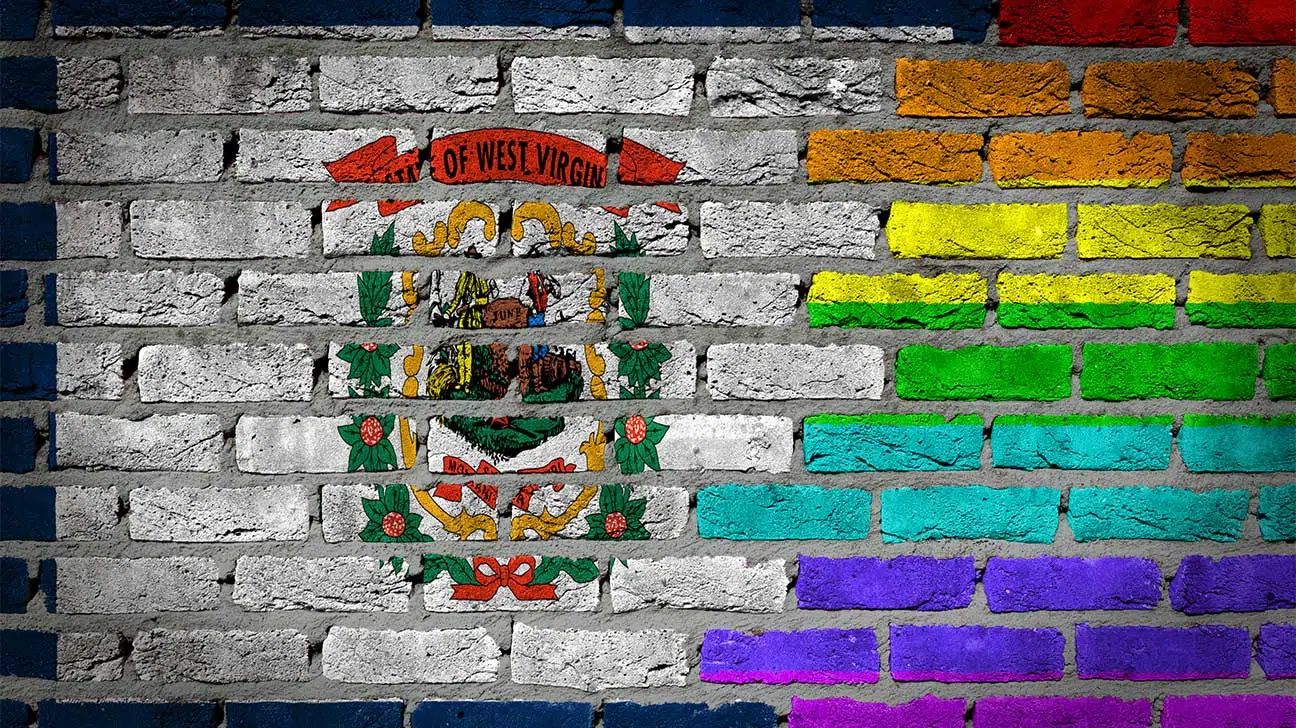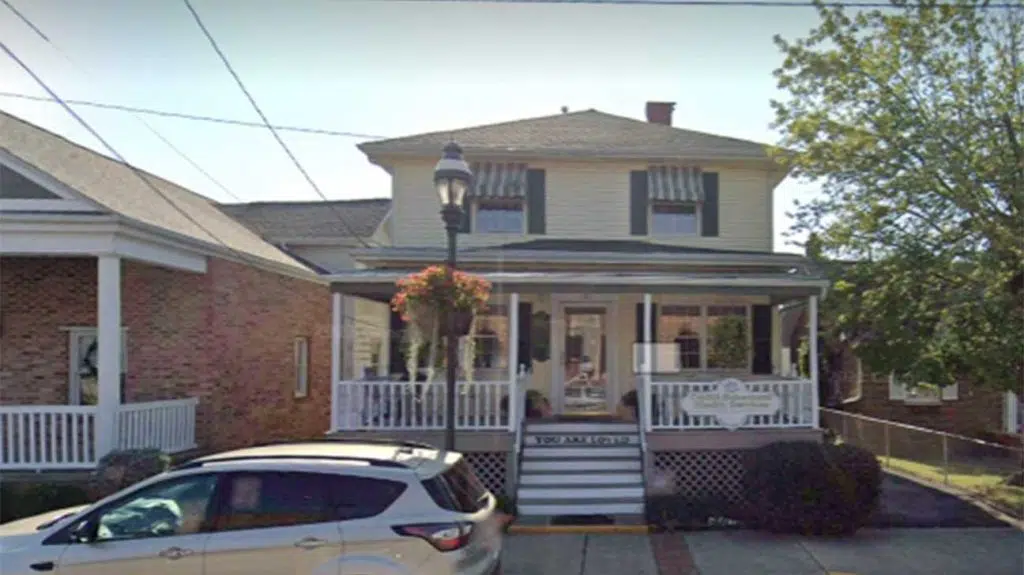
People who are lesbian, gay, bisexual, transgender, or questioning often face a unique set of challenges and social factors which may contribute to substance use disorders (SUDs).
As a result, many drug and alcohol rehab centers in West Virginia are implementing LGBT-friendly or LGBT-centric rehab programs to help community members achieve sobriety.
Treatment options that may benefit LGBT people include therapy, detox, inpatient and outpatient programs, and other evidence-based treatment practices.
List Of LGBTQ+ Drug Rehab Centers In West Virginia
The addiction treatment programs and detox facilities listed below were mentioned for their accreditations, certifications, provision of LGBT-inclusive programs, and more.
1. Harmony Ridge Recovery Center, Walker, West Virginia
This drug and alcohol treatment facility provides a full continuum of mental and behavioral health services for LGBT-identifying people.
LGBTQ+ persons can receive beneficial treatment at this location in the form of:
- cognitive behavioral therapy (CBT)
- dialectical behavior therapy (DBT)
- family and group therapy
- holistic addiction therapy
- eye movement desensitization and reprocessing therapy (EMDR)
- individual case management
- relapse prevention
- dual diagnosis treatment programs
- inpatient programs
- outpatient programs
Features of this addiction treatment center include:
- LegitScript certification
- a 4.8-star Google rating with 315+ published reviews from past clients
- numerous evidence-based treatment programs
Location and contact information:
47 Chambers Circle Rd.
Walker, WV 26180
(888) 771-8372
2. Oasis Behavioral Health, Barboursville, West Virginia
This substance abuse treatment center in Barboursville, WV, provides a number of LGBTQ+ friendly mental health and behavioral health treatment services.
You can expect to find the following treatment programs and services at OBH:
- psychotherapy programs
- outpatient evaluation
- mental health treatment programs
- certified CARE-2 and F-RISK assessments
- detox from alcohol, opioids, methamphetamine, and other substances
- therapy and counseling services
Features of OBH include:
- therapy programs certified by the American Society of Addiction Medicine (ASAM)
- partnership with the International Center for Clinical Excellence (ICCE)
- a 3.9-star Google rating with published testimonials
Location and contact information:
689 Central Ave.
Barboursville, WV 25504
(304) 733-3331
3. Prestera Center For Mental Health, Charleston, West Virginia
Adult mental health treatment services are provided in a welcoming and inclusive treatment setting that is open to all demographics and identities at this rehab center.
Treatment programs at this facility include:
- intensive outpatient program (IOP)
- residential services
- long-term housing for homeless individuals
- therapy and counseling programs
- detox programs
- supportive housing programs
This facility benefits from accreditation through the Commission on Accreditation of Rehabilitation Centers (CARF) to accompany a 5.0-star Google rating.
Location and contact information:
911 Michael Ave.
Charleston, WV 25387
(304) 414-2065
Substance Use In The LGBTQ+ Community
Members of the LGBTQ+ community have been found to develop SUDs at higher rates than their straight counterparts, dating back to studies from the 1980s, with numbers increasing as of late.
For instance, a 2018 study found that 37.6% of sexual minority adults had used at least one substance, compared to just 16.2% of adults within the general population.
Similar studies have found that gay men, too, are almost 13x more likely to use hard drugs — such as heroin, opioids, or cocaine —than straight men.
Factors That Contribute To Substance Use In The LGBTQ+ Community
Studies by the Substance Abuse and Mental Health Services Administration (SAMHSA) have noted several differences that contribute to substance use in LGBT communities.
Lifestyle choices, workplace discrimination, and targeted advertising comprise just a few of these factors.
Additional risk factors may include:
- homelessness
- discrimination from family, social, or religious groups
- privation of access to affordable healthcare programs
- genetic dispositions to substance addiction
- prevalence of mental health disorders, such as post-traumatic stress disorder (PTSD)
What To Look For In A LGBTQ+ Drug Rehab Program In West Virginia
While many LGBT persons can benefit from most drug addiction treatment services, there are a few programs that may be expressly beneficial to those in the LGBTQ+ community.
Programs and services which may benefit LGBT people include:
- motivational interviewing (MI)
- cognitive behavioral therapy (CBT)
- dialectical behavior therapy (DBT)
- trauma-informed therapy
- counseling and intervention programs for friends and family members
- detoxification programs
- dual diagnosis care for co-occurring disorders
- outpatient treatment
- inpatient rehab
- behavioral health services
- aftercare programs
- counseling and affirmation classes for transgender individuals
- treatment programs for mental health issues
- adolescent treatment programs at participating locations
- long-term residential treatment
- drug and alcohol addiction counseling
- partial hospitalization programs (PHP)
FAQs For LGBTQ+ Rehab Facilities In West Virginia
Find answers to some of the most commonly asked questions concerning LGBTQ+ friendly drug and alcohol treatment programs in the state of West Virginia.
Do LGBTQ+ Rehab Centers In West Virginia Accept Pregnant Women?
Some LGBTQ-friendly West Virginia drug treatment centers accept pregnant women.
However, not every facility is licensed or outfitted with the necessary paperwork or resources to provide specialized care services for pregnant mothers.
With that said, you should verify the existence of such a program with the admissions counselor of your selected rehab center prior to enrollment.
Can I Pay With Medicaid For A LGBTQ+ Rehab Program In West Virginia?
Some drug and alcohol rehab centers in West Virginia accept Medicaid, or other state health insurance, such as Medicare, or TriCare.
However, other treatment centers may only accept private insurance, and still other treatment providers may not accept insurance coverage.
Contact the financial department at the rehab center of your choice prior to enrollment to verify that your payment methods will be accepted to cover the cost of treatment.
How Long Will I Stay In A LGBTQ+ Rehab Program?
The answer to this question depends on a number of factors that are specific to the client in question.
First, the type of substance used and the severity of the addiction, alongside any co-occurring disorders, will have the greatest effect on the length of your rehab stay.
The overall physical and mental health of each person is also considered by medical professionals before judgment can be rendered.
This means that your inpatient or outpatient rehab stay could be anywhere from a few weeks to a few months or more.
Find A LGBTQ Rehab Center Today
If you or a loved one is in search of a LGBTQ+ friendly rehab program in West Virginia, give our helpline a call today to obtain a referral to a rehab center near you.
Published on August 12, 2022
Addiction Resource aims to provide only the most current, accurate information in regards to addiction and addiction treatment, which means we only reference the most credible sources available.
These include peer-reviewed journals, government entities and academic institutions, and leaders in addiction healthcare and advocacy. Learn more about how we safeguard our content by viewing our editorial policy.
- National Institute on Drug Abuse (NIDA) — Substance Use and SUDs in LGBTQ* Populations
https://nida.nih.gov/research-topics/substance-use-suds-in-lgbtq-populations - Substance Abuse and Mental Health Services Administration (SAMHSA) — National Helpline
https://www.samhsa.gov/find-help/national-helpline - Substance Abuse and Mental Health Services Administration (SAMHSA) — Sexual Orientation and Estimates of Adult Substance Use and Mental Health
https://www.samhsa.gov/data/sites/default/files/NSDUH-SexualOrientation-2015/NSDUH-SexualOrientation-2015/NSDUH-SexualOrientation-2015.htm


